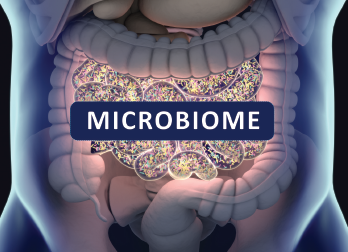
Anatomy Insider / shutterstock.com
CHICAGO—The world of rheumatology is beginning to harness the promise of the microbiome, with evidence showing components of the gut may help predict response to medication and may be manipulated to improve how well a treatment works, said Jose Scher, MD, at the 2019 ACR State-of-the-Art Clinical Symposium, held April 5–7.
“We can truly exploit or employ the microbiome as predictors of response,” said Dr. Scher, director of the Microbiome Center for Rheumatology and Autoimmunity at New York University. “We can [also] manipulate the microbiome.” That may lead to new therapeutic approaches.
The sheer enormity of the microbe population is a factor that bodes well for useful applications in rheumatology treatment, Dr. Scher said. One hundred trillion microbial cells live in and around the human body, and they encode for about 3 million genes. Yet only about 20,000 genes exist in the human body. Therefore, the genetic makeup of the microbiome dwarfs that of humans by a factor of more than 100.
Although scientists are not capable of culturing about 80% of bacteria in the microbiome—because the nutritional and oxygen requirements, for example, are unknown—it’s possible to gather a sample of stool or skin and determine every taxa in that sample, amplify those genes and ask what function those genes perform, Dr. Scher said. One of the central functions of the human microbiome is shaping the gut immune system and creating a defense against pathogens.
Dr. Scher’s lab has examined a range of rheumatologic diseases, including rheumatoid arthritis, psoriatic arthritis and ankylosing spondylitis, finding corresponding abnormalities in the microbiome.1
“In every single one of the cases [in which] we see chronic inflammation, we see something we’ve described as dysbiosis”—in which the composition of microbiome falls out of balance, he said.
Pharmacomicrobiomics
Researchers have found dietary fibers are converted by microbes into short-chain fatty acids, and regulatory T cells with receptors for these fatty acids reside in the lamina propria of the gut, thereby helping suppress inflammatory responses.2 Researchers have also found in studies of germ-free mice in which regulatory T cells had been depleted the T cells could be reconstituted with short-chain fatty acids.3
This insight is important to potentially harness of the microbiome’s function, Dr. Scher noted. “Microbes are important, but more relevant is the fact they produce immunomodulatory metabolites,” he said. “Can we modify chronic inflammatory disease, in whichever form, by incorporating some of these immunomodulators?
“It follows that you can take some of our drugs or some of our dietary components and biotransform [them] into something different,” he added. This idea has come to be known as pharmacomicrobiomics.


